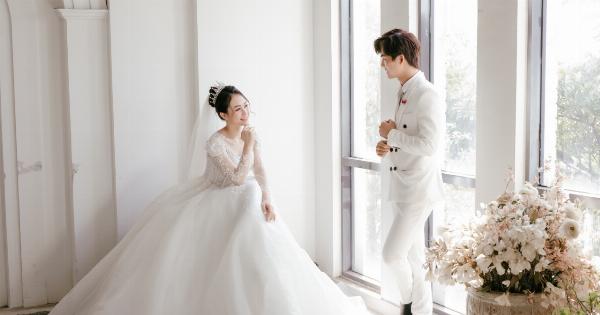Marriage is an important milestone in someone’s life, and choosing the perfect age to tie the knot is a decision that many individuals ponder over.
While there is no one-size-fits-all answer, as everyone’s circumstances and priorities are different, it is worth considering various factors that can influence the ideal age for getting married. In this article, we will explore the advantages and disadvantages of marrying at different ages, helping you make an informed decision about when to say “I do.”.
Early Marriage: The Pros and Cons
Getting married at a young age, such as in the early twenties or even late teens, has both its advantages and disadvantages.
The Advantages
1. Emotional Growth: Getting married early can foster emotional maturity as individuals navigate the responsibilities and commitments that come with marriage.
It can provide an opportunity for personal growth, helping them understand themselves better and become more self-reliant.
2. Shared Accomplishments: Starting a life together at a young age allows couples to build their lives and achieve their goals together. They can support each other through education, career aspirations, and personal endeavors.
3. Family Planning: Early marriage provides more time for couples to start a family and have children.
This can be advantageous for individuals who desire to have children sooner rather than later, ensuring they have the energy and resilience to raise a family.
The Disadvantages
1. Limited Life Experiences: Marrying early may mean sacrificing some personal experiences and opportunities for growth.
Young couples might miss out on exploring individual aspirations, education, or career advancements due to the commitments of married life.
2. Financial Instability: Young couples often face financial challenges as they are still establishing their careers. This can lead to financial strain and cause stress within the relationship.
3. Lack of Compatibility: Individuals who marry at a young age may not have had ample time to understand themselves fully or explore various relationships. This can result in marrying someone who might not be compatible in the long term.
The Optimal Age: Finding a Balance
While early marriage has its own set of advantages and disadvantages, many individuals tend to wait until their late twenties or early thirties to tie the knot. This period often provides a better balance between personal growth and stability.
Benefits of Marrying in Your Late Twenties to Early Thirties
1. Emotional Maturity: By waiting until their late twenties or early thirties, individuals have a better understanding of themselves and what they want from a partner. This can lead to more compatible and successful long-term relationships.
2. Established Careers: Waiting until later in life to marry allows individuals to establish their careers and gain financial stability. This can eliminate many of the financial stressors that young couples face.
3. Expanded Social Network: As individuals grow older, their social circles tend to expand. This increases the chances of meeting potential life partners with shared values and interests.
Considerations for Marrying Later
While waiting until your late twenties or early thirties to get married can be beneficial, it is crucial to consider a few factors.
1. Biological Clock
For individuals who want to start a family, there is a biological clock to consider. Fertility tends to decline as individuals age, making it more challenging to conceive or have a healthy pregnancy.
2. Increased Expectations
As individuals get older, they often have more specific expectations for their partner and marriage. This can lead to increased pressure and a greater emphasis on finding the “perfect” match, potentially making it harder to settle down.
Conclusion
The perfect age for getting married varies from person to person, and there is no one-size-fits-all answer.
While some prefer to marry early to grow together and build a life, others find waiting until their late twenties or early thirties more suitable for personal and professional reasons.
It is essential to consider your own circumstances, priorities, and long-term goals when determining the ideal age to say “I do.” Remember, what matters most is the love, commitment, and mutual understanding between partners, regardless of age.






























